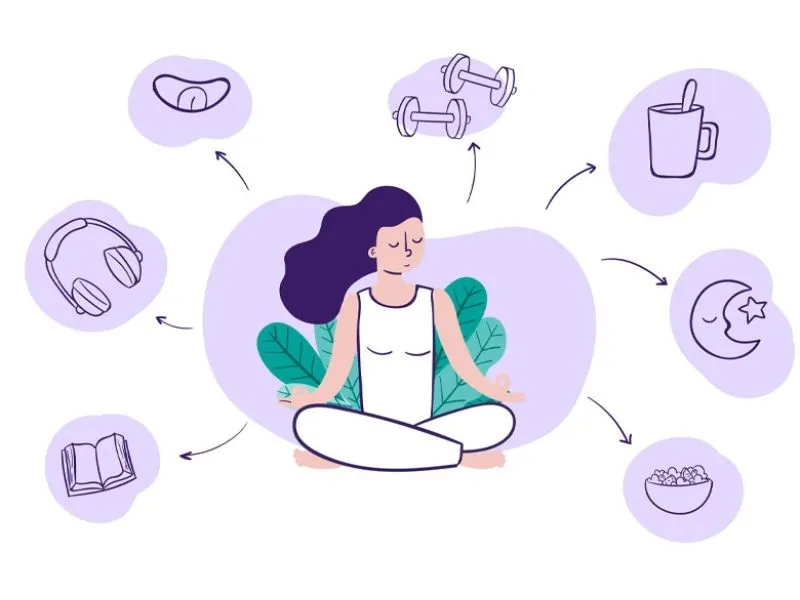💡 Recognize the Signs of Academic Stress: Understanding when stress is becoming overwhelming can help prevent burnout.
💡 Develop Healthy Study Habits: Effective time management and study techniques can reduce last-minute cramming and anxiety.
💡 Practice Self-Care and Relaxation: Simple activities like exercise, deep breathing, and mindfulness can improve mental well-being.
💡 Seek Support from Teachers, Friends, and Family: A strong support system is crucial for emotional health and academic success.
💡 Maintain a Balanced Lifestyle: Prioritizing sleep, proper nutrition, and social activities helps sustain mental and physical health.
💡 Adopt a Growth Mindset: Viewing challenges as opportunities for growth rather than failures can build resilience and confidence.
With demanding coursework, AP exams, extracurricular activities, and college applications, students often feel overwhelmed. Academic pressure is real, but it doesn’t have to control your life. By adopting effective stress management strategies, students can maintain both their mental well-being and academic performance.

It’s important to recognize when stress levels are becoming unhealthy. Common symptoms of academic burnout include:
✔️ Constant fatigue or lack of motivation
✔️ Difficulty concentrating on schoolwork
✔️ Increased irritability or mood swings
✔️ Trouble sleeping due to anxiety about grades
✔️ Physical symptoms like headaches or stomach pain
If you notice these signs, it’s time to step back and take care of your mental health.
One of the best ways to manage academic pressure is to develop strong study habits.
✅ Plan ahead: Create a realistic study schedule to avoid last-minute cramming.
✅ Use active learning techniques: Summarizing notes, teaching concepts to a friend, or using flashcards can improve retention.
✅ Take breaks: The Pomodoro technique (25 minutes of study, 5-minute breaks) can prevent burnout.
✅ Set realistic goals: Break large tasks into smaller, manageable steps to stay motivated.

Taking care of your mental health isn’t just about managing schoolwork—it’s about taking care of yourself.
Exercise regularly: Even a short walk can help reduce stress.
Try deep breathing or meditation: Mindfulness exercises can calm the mind and improve focus.
Engage in hobbies: Whether it’s music, art, or sports, doing what you love can be a great stress reliever.

You don’t have to face academic stress alone.
✔️ Talk to your teachers: If you’re struggling with coursework, ask for guidance.
✔️ Lean on friends and family: Sharing your worries with someone who understands can make a big difference.
✔️ Consider professional help if needed: School counselors and therapists can provide valuable coping strategies.
A well-balanced lifestyle plays a major role in mental health.
Prioritize sleep: Aim for at least 7-9 hours of sleep each night.
Eat nutritious meals: Avoid excessive caffeine and junk food, which can worsen stress.
Make time for social activities: Connecting with friends can provide emotional support and relaxation.

Instead of seeing challenges as failures, view them as opportunities for growth.
Reframe negative thoughts: Instead of "I’m bad at math," try "I’m improving with practice."
Embrace mistakes as learning experiences: No one is perfect—use setbacks as motivation to do better next time.
Celebrate small victories: Acknowledge progress, even if it’s just understanding a difficult concept.

High school can be academically demanding, but managing stress effectively can make a huge difference. By developing healthy study habits, practicing self-care, seeking support, and maintaining balance, students can thrive both academically and emotionally.
At Sinica Education, we believe that academic success starts with well-being. If you’re looking for guidance on time management, study strategies, or academic support, reach out to us today. Let’s work together to achieve your academic goals while prioritizing mental health!
For more supplemental resources that best match your academic need and goal, contact one of our specialists today!


